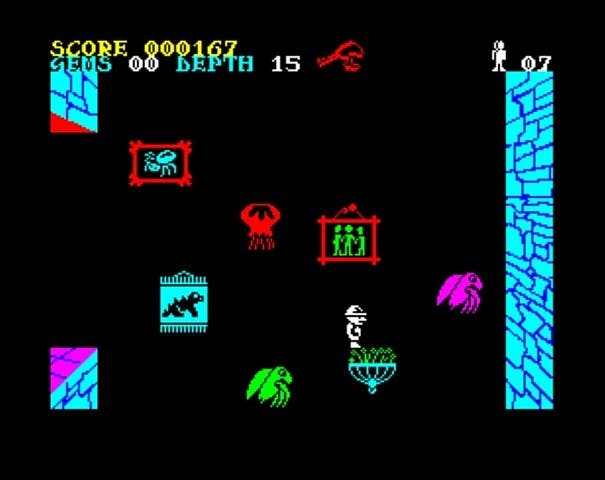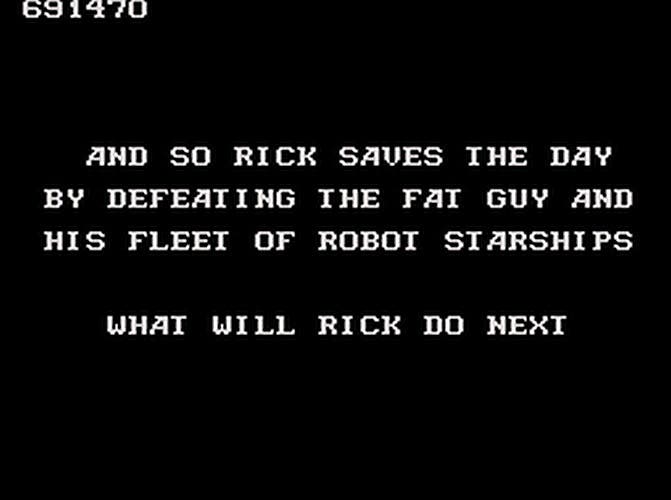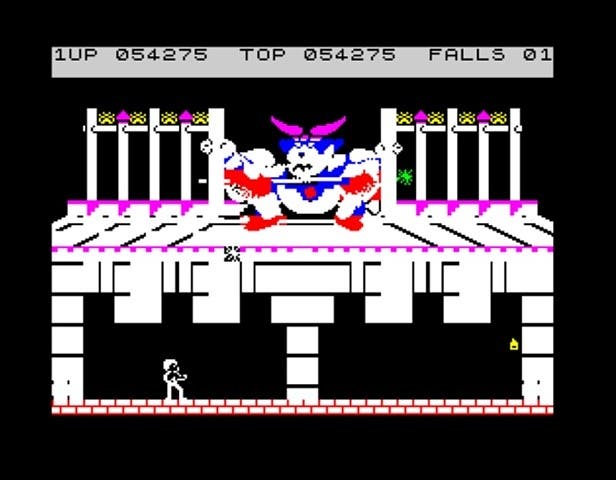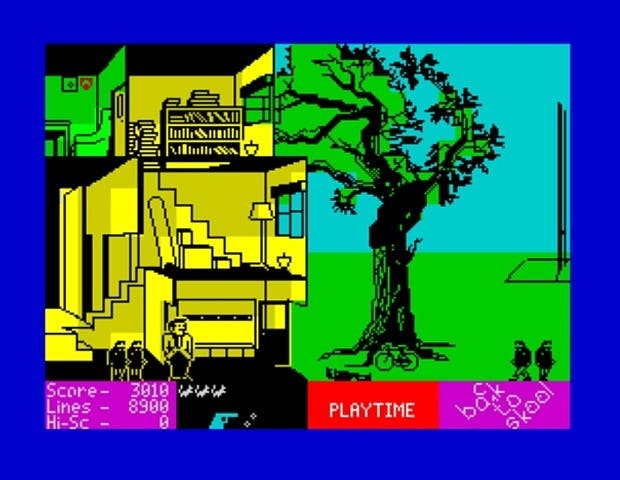I Know It's Over
Anti-climax in Speccyville.
For most of you out there in Readerland, the usual disappointment and mirthless horror of New Year's Eve will be fresh in the mind. Conclusions are as important to the creative mediums as they are inevitable in the yearly cycle - and narrative endings can be just as lacking in originality. Bringing a story to a satisfactory close is vital if the viewer/reader/player is to leave with a cosy sense of well-being. It doesn't have to be cheerful, it just has to work.
Cack-handed endings have nevertheless continued to slink guiltily into the world. "It was all a dream" proudly tops this league of weak finishes, narrowly pursued by "It was all a dream ... OR WAS IT?" - two examples of the writer scribbling some hopeless nonsense which invalidates almost everything preceding the final revelation, and showing utter contempt for the audience in the process.
Unfortunately, whether due to memory restrictions or simply because we were witnessing the early fumblings of gaming, the otherwise loveable Spectrum also fell victim to some mixed results in the ending department.
Congratulations, and Jubilations

In the semi-isolated world of Speccy games there was an obvious equivalent to "It was all a dream." Having slogged through a marathon twenty-hour playing session without the aid of a save game slot, food or any bathroom breaks, a player would be understandably keen to see a moderate reward for his efforts. Sending a final, fatal missile into the heart of the last boss, they would sit back and await the dramatic conclusion. No doubt a hearty visual handshake from the programming team would be on the way, offering some recognition that the player had forgone homework for the last three days in order to complete their pixelated treat. The screen goes black. Music swells. Well, changes in tone ... well ... beeps a bit louder. The moment is unveiled.
"Congratulations, the Earth is safe."
Oh god, not again.
Alas, yes. Variations on this rather understated message were the norm for what felt like a near-endless series of titles. Looking back, such minimalism may seem preferable to a two-hour unskippable cut-scene - and with some justification. The ideal, though, is surely located on the middle ground between uninspiring words and lengthy borefests.

Even the much-feted Ultimate Play The Game opted out of delivering rousing conclusions. Worse, they tended to combine a limp line of text with a spot of advertising. Underwurlde (Ultimate, 1984) was especially guilty, offering three equally disappointing endings which essentially amounted to "Yes, well done - now buy our next game." One of which (Mire Mare) didn't even see release. Given how much Ultimate managed to squeeze out of the machine, space for an all-singing finale was no doubt in short supply; but after a lifetime of being knocked off bubbles by deformed birds it seemed reasonable to expect at least another slice of finely-crafted poetry. Instead we got solicitation of further products.
Other games appeared all too aware that the vast majority of players would never even reach their final screen. That's the only convincing way to explain Rick Dangerous 2's (Micro Style, 1990) closing missive. As it continued the original's fine tradition of being a massively irritating series of trial and error memory tests, many were likely to falter before the finishing line. Those who did manage to stick it out were greeted by the laughable "So Rick saves the day by defeating the Fat Guy and his fleet of robot starships. What will Rick do next?" What indeed! Nothing, as it happens - there was no Rick Dangerous 3. Thankfully.
The Circle of Strife

There was another way out of this quandary. Sadly, it tended to just add a further layer of disappointment.
Almost everybody was able to finish Bruce Lee (US Gold, 1984). After defeating the rotund energy-ball spouting baby (undoubtedly an early inspiration for Half-Life's foetal end boss), players were met with the usual dreary congratulations text and Mr Lee posing on a previously unseen screen. Then the game simply began again. From the start. With no changes whatsoever, save for a cumulative score. In a single moment of coding genius the lack of a decent ending was explained away. There could be no true conclusion, because Bruce was trapped in a recurring state of limbo. One where he must eternally do battle with a sumo wrestler and a small bloke with a stick.
This was an extremely poor way to avoid a proper finish. Annoyingly, it was also an alarmingly widespread practice. The sideways scrolling space-hijinks of Exolon (Hewson, 1987) and Cybernoid (Hewson, 1988) couldn't resist the perpetual cycle. Nor could the otherwise ludicrously inventive Back to Skool (Microsphere, 1985). Though at least this game made the effort to excuse itself by suggesting the reset represented a new school term - even if it was unable to explain why all memory of the previous one had now been mysteriously erased. It was arguably more entertaining to avoid this ending altogether and rack up a few last-minute punishments, followed by a futile dash away from the chasing teacher. Grabbing the bike and peddling off to cower inside the girls school could buy a bit of time, but for an ultimate act of defiance you couldn't beat a suicidal dive from the highest window. After which, details of the immediate expulsion would be movingly dictated to Eric's corpse.

Codemasters found a novel way to temporarily sidestep the ending conundrum by providing a fake-out ending to several of their Dizzy and Dizzy-esque titles. The majority of the game would deal with the central plot (save Daisy, save the Yolk Folk, save the whales), only for an increasingly-less-surprising twist to be revealed - requiring the main character to collect thirty shiny coins, stars or Weetabix tokens. Delight at discovering an extra sub-plot was quickly tempered as it gradually dawned that these trinkets could be hidden behind any piece of scenery in the game. Sure, it was technically possible to press fire over every single part of the landscape in search of those last few items, but in the same period of time most players would probably have just bought another game or turned into fossilised remains for future archaeologists, or something.
